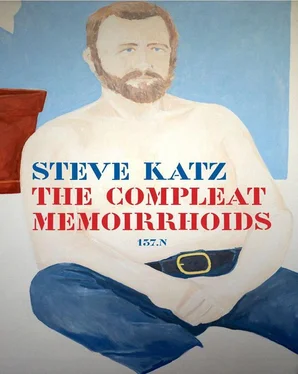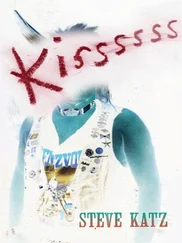Loaded with the newspaper and the goods I head back past the clatter and spark of a Broadway trolley, and many other people yawning into the street, waking into their late Sunday morning rituals. A small crowd of church goers gathers at the entrance to the Broadway Temple Presbyterian Church, all of them well dressed, so clean, ties neatly centered, hats perched like kettle covers, a shine on their shoes. I notice Shelley down in the schoolyard, shooting some hoops alone, and cling to the fence to watch for a few minutes, then go down the steps to shoot with him. Shelley has the weirdest arsenal of shots in Washington Heights. Sometimes he throws it at the basket, even underhanded, or tosses up a contorted hook shot from anywhere on the court. I can never believe it, but often his shots go in. I love to shoot hoops, can do it for hours, just to forget about school, about everything else. Some other kids show up and we start a game of “horse.” In horse you have to imitate the shot of the kid who shoots first, if he makes it. That’s why I don’t recommend playing horse with Shelley. The first thing he does is sink one of his bizarre hook shots from outside the foul circle. No one else can make a shot from there, much less imitate the way he shoots it, like he has double jointed shoulders. Once enough kids show up we play three-man ball. I guard Shelley. He doesn’t move much, but it is impossible to guard his shot. As soon as he gets the ball, anywhere on the court, he chucks it up, sometimes without even looking at the basket, and often it goes in; I mean, swish.
I finally remember the newspaper and packages and head home. I don’t know how long I’ve been gone. The sun is clear up in the sky, almost over the Jersey tower of the G.W. Bridge. I expect to catch hell. My twenty minute shopping trip has taken more than three hours. My mother says only, “It took you long enough. It’s afternoon already.”
“I met Shelley.” I say. “We got into a conversation.”
My father hands me funny papers and puts the rest of the news aside. He unwraps the lox. It’s one of the few times in recent years he’s been at home. I would love to learn tennis from him. He once was a great tennis player, or so I am told, but he is always too sick to go out and hit the ball with me. “Looks like nice fish,” he says. He slices a hard roll and scoops out the doughy interior. He does that for his health. He spreads the roll with farmer cheese and lox. In just a few months he’ll be dead. I think about how every night when he’s home he plays pinochle at the kitchen table with my uncle Sammy, and he always cheats, and Sammy doesn’t notice. I slice a bialy and spread some cheese and lox on it. It’s our Sunday treat. I’ve seen my father so infrequently in recent years I can’t but stare at him, his tired eyes, the shadow of his whiskers, the folds of loose skin at his neck. He slowly rotates his jaw as he chews. How much he enjoys this hard roll.
Pete Dean’s t-shirt was doomed. I grabbed a sleeve and yanked and felt it rip under the armpit. He had my shirt bunched in his fist, and he pulled. My t-shirt was doomed. I heard the rip. I grabbed his loosened sleeve and pulled. That spelled the end for Pete’s t-shirt. It ripped across the front. Just then he pulled my shirt out with both hands and snapped the neckband. The fabric pulled apart like wet paper. This Fruit Of The Loom was a goner. I had just bought it and didn’t expect it to go so fast. I pulled again on his, opening a long rip across the back. It slipped down and dangled uselessly from his right shoulder. The remains of my shirt slipped to my waist. We were laughing like two kids in a mud fight. Jingle and Lori, the wives, looked on with tolerance and disdain. This had been a ritual for several years since we were roommates at Cornell. As soon as we saw each other we went for the t-shirts. Pete transferred to Wisconsin to study geology, and secretly became a painter. I transferred at Cornell from Agriculture to Liberal Arts, thinking I was a writer.
Our wives, particularly Lori, put an end to the t-shirt ritual, because it was stupid, and maybe homoerotic, though we were both straight as Broadway through Manhattan. We were mostly broke however, and replacing shirts was expensive. Pete became one of the great neglected painters of century twenty. He was self-taught, though he skimmed some instruction as a model in life classes in Wisconsin. He did acknowledge the fauves and German expressionism as his teachers, as well as Andre Girard in New York. He had come to America with his family from Berlin, escaping the Nazis in the eleventh hour, much like the family of Kirk Douglas, whom he quite resembled. Several of his paintings deal with that personal exodus. Peter was an awesomely prolific painter, and because of the inundation of works I often disregarded or misjudged the quality of his work while he was alive. Whenever I visited his studio he had four or five paintings going at once, and would show me a box full of small paintings and drawings done since I’d last checked in. He was also a world class dumpster diver, and created powerful spooky fetishes and small shrines out of his gleanings.
Peter painted fast, with breathtaking enthusiasm. He did fantasies and narratives, for which he is best known, but also astonishing landscapes, with colors lifted from some divine palette. The landscapes alone should put him in the pantheon. Within this production are some of the most original, moving paintings of the twentieth century. He worked outside the cool, corporate trends of his time and blasted away at his own weird vision. Art trends produced minimalism, conceptualism, and etc. — neutral work that would never embarrass the corporate interests buying art. He was tough and humane and impassioned as an artist. Peter Schjeldahl told me once (he was a poet at the time) that I should tell Pete that he can’t paint that way; that it’s a no-no to do narrative paintings with such a thick impasto of oils. It was a contradiction, I guess, to the Schjeldahl way of seeing. I came to see Pete’s attack as a counterpoint of the agitation of the painted surface against the process of the story. He loved the paint, and wanted your eyes to play with it as his brushes had. The figures in his narratives are curiously static, often masked, while the painted surface is always agitated and disturbed. His subjects are strange, never sentimental, never flattered, always treated with brusque honesty. Schjeldahl went on to ignore Pete Dean’s work, as he has ignored several other wonderful artists, while he built a reputation as a sometimes perceptive, and insightful, though occasionally blind even inane art critic, now hacking it out at the New Yorker .
Pete died in 1993 after a tough battle with ALS. I can’t but believe that the pace of his production was the result of his foreknowledge of this outcome. I was out of the country for the memorial service, and it’s a great regret for me. I miss him every day. It is just recently that I realized how I would have liked to eulogize him, had I been there. I would have told the story of the t-shirts, and in honor of Pete, in front of the hundreds from the New York art scene who mourned him, I would have torn my own shirt down into shreds of praise and grief.
In Verona, in Italy, I got my hands on a copy of John Berryman’s 77 Dream Songs . They touched me profoundly at that time. Some locked into my memory. I recited them frequently in my mind.
Filling her compact & delicious body
with chicken paprika, she glanced at me
twice.
(Restaurants in Verona don’t serve chicken paprika. Not in the city of Romeo & Juliet. )
Fainting with interest, I hungered back
Читать дальше












